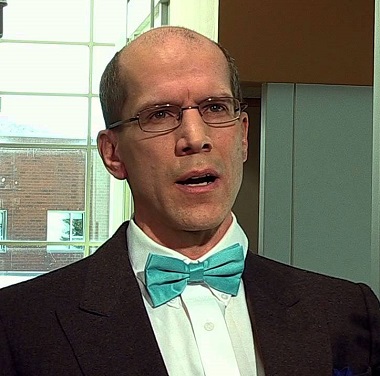
Dr. Sam Reimer will be visiting Trinity Western University next week to discuss why fewer people are going to church and whether Canadians are more religiously polarized these days.
At first glance, it seems that Trinity Western University is planning to celebrate Pessimism Day next week.
On Thursday (March 23), Dr. Sam Reimer will be discussing Why Canadians aren’t Going to Church and What that Means for Evangelical Churches in Canada, while across town on TWU’s Richmond campus, Dr. Paul Chamberlain will be asking Why Do People Stop Believing?
At second glance, it appears possible they are helping the rest of us not bury our heads in the sand.
Why Canadians aren’t Going to Church
 Reimer has published Evangelicals and the Continental Divide: The Conservative Protestant Subculture in Canada and the United States (McGill-Queen’s University Press, 2003) and, with TWU sociology professor Michael Wilkinson, A Culture of Faith: Evangelical Congregations in Canada (McGill-Queen’s University Press, 2015).
Reimer has published Evangelicals and the Continental Divide: The Conservative Protestant Subculture in Canada and the United States (McGill-Queen’s University Press, 2003) and, with TWU sociology professor Michael Wilkinson, A Culture of Faith: Evangelical Congregations in Canada (McGill-Queen’s University Press, 2015). Faith Today interviewed Reimer shortly after the release of A Culture of Faith. Following is part of that discussion:
FT: Some say Evangelicals are just 20 years behind the mainline, and will face the same issues of decline. Is that what you think?
SR: There are respected voices in the U.S. in particular who are saying the trajectory of evangelicalism looks a lot like the trajectory of mainline Protestantism 40 years ago. But I think if there is a decline in evangelicalism, it will be less dramatic, and that is because there is still an emphasis on evangelism. Even though proselytization might not always be successful, it still revitalizes the Church. Worldwide evangelicalism has a huge growth factor, and the world is coming to us. We are seeing evangelical immigrants come who are revitalizing churches that might otherwise be dying.
FT: What about Evangelicals who conclude their denominations are holding steady simply because they “preach the gospel?”
SR: I think there’s something to that, but a sociologist would talk about it this way – what a church needs to do is present a religiosity that is unique enough, and distinctive enough from the culture around it, that it creates a strong identity and sense of belonging. . . .
Reimer also wrote a still-timely article for the May/June 2016 issue of Faith Today: Are American and Canadian Evangelicals Really That Different?
Why Do People Stop Believing?
Dr. Paul Chamberlain is a philosopher and director of the Institute for Christian Apologetics at Trinity Western University. He will be asking ‘Why Do People Stop Believing?’ at TWU Richmond.
Here is the invitation:
Why do some people stop believing in Jesus? How can strong advocates of the Christian faith – even those who once served as pastors and seminary professors – choose to abandon their faith and become advocates for atheism?
Dr. Paul Chamberlain has been asking these very questions while completing his latest book. In partnership with ACTS Seminaries and MinistryLift, Dr. Chamberlain invites you to an engaging evening of good questions and good thinking at our next Fireside Apologetics event. The evening will include a presentation from Dr. Chamberlain, a panel discussion and a chance for the audience to ask questions.
Registration is required, but the event is free of charge.


Canada was a Protestant and Catholic nation which became a Catholic and Protestant nation, and now is on the verge of becoming a Catholic and non-religious nation. Things change, but the basics of society survived (and evolved).
It is the way of history: accept it, or get left behind.